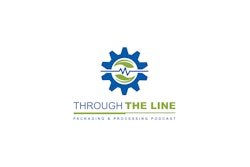
He also argued that industry-wide standards should be embraced by machinery OEMs, including packaging machinery OEMs, as a means of helping pharma companies achieve greater interoperability and tighter integration of systems and data. Among his observations:
- End users should involve themselves in the development of industry-wide standards.
- Standards should be developed with longevity as a key objective even though we operate in a continuously changing technological environment.
- The pharma industry today is looking at biotech to re-energize the new-product pipeline. Getting into biotech is often done through acquisition, and acquisition often leads to diversity in business processes and technologies. That presents a challenge where interoperability is concerned.
- Regulatory compliance in pharma is bringing about a complete change in how drug companies expect to manufacture. Learning by trial and error and eventually providing an approach that works is not enough. Now it’s essential to understand the science behind all manufacturing processes to such an extent that when there is a deviation, instrumentation will identify and announce it automatically. It won’t come from a clip board, but from greater visibility into the manufacturing process itself. “We need more data, and it needs to be more accessible throughout the enterprise,” said Greene. Acceptance of industry-wide standards, he added, would help.
- Integrated automation with widespread interoperability as a cornerstone is a key to cost reduction. Integrated systems reduce regulatory risk. Vertical integration of data is critical to support continuous improvement by all in the enterprise.
- Demand-driven supply networks require seamless business process integration within an organization. It’s not good enough to manually transfer information from one part of the supply chain to the next.


























